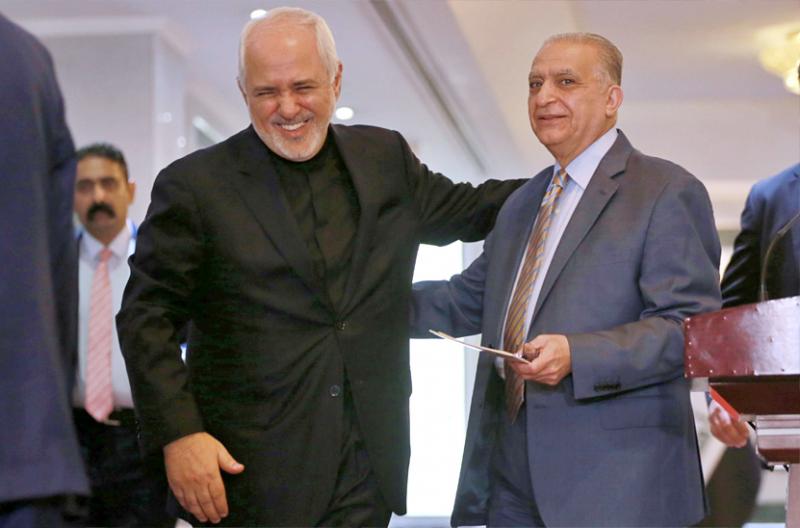In what is an unsurprising but perhaps disappointing revelation, the Wall Street Journal reported that the US State Department concluded that recent attacks on Saudi oil infrastructure were not orchestrated by the Iran-backed Houthi extremists.
Instead, the State Department said it had evidence that drones used in the attack originated from southern Iraq, an area filled with pro-Iran Shia jihadist groups that fight under the command of the Islamic Revolutionary Guard Corps (IRGC).
In other words, the IRGC made good on its threats to strike the United States and its allies and sought to divert blame onto its proxies in Saudi’s troubled southern neighbour Yemen. The reason is clear: to protect Iraq’s image as a “neutral party” when it is Iran’s Trojan horse in the Arab world, working to further Iranian interests and undermine its Arab neighbours.
For example, despite being one of the most energy-rich countries, Iraq has leveraged and abused its counterterrorism cooperation with the United States against the Islamic State (ISIS) and other groups to seek sanctions waivers so they can continue to buy Iranian energy.
It has been more than 16 years since the ouster of Saddam Hussein, yet the new “democratic order” would rather allow Iraq to be used and abused by Iran to sidestep sanctions against the ayatollahs and to protect Shia jihadists who are no better than ISIS even though they wear the uniforms of the military and state security apparatuses.
The Trump administration’s “maximum pressure” campaign is working. The Iranian economy is in a tailspin, its currency depreciating rapidly and its oil exports have been crippled. Nevertheless, Tehran feels that it can continue to “resist” because it is using Iraq as an abundant backyard and is pillaging its bounties with the aid of politicians and IRGC-linked terrorists with no one to stop them.
As such, crucial measures need to be taken by Iraq’s Arab neighbours, as well as the United States.
Despite Saudi investments, the opening of new consulates and extensive outreach with controversial Shia clerics such as Muqtada al-Sadr, whose electoral bloc won the most votes in last year’s low-turnout elections, Iraq is not shifting from Iran’s orbit.
Far from curtailing militants hostile to Arab interests, the Iraqi government stands by as these jihadists launch drone strikes on Saudi Arabia. Such hostility can only be considered an act of war and Iraq’s Gulf Arab brethren need to call it out immediately.
They also need to invest in capacity building for domestic opposition groups that have a chance to upend almost two decades of disastrous and sectarian politics that allowed Iran to take almost full control of Iraq. Without a friendly domestic political force, the Gulf Arabs will have ceded the strategic field to Iran.
Also, the United States needs to stop mollycoddling the Iraqi regime and must acknowledge that Washington utterly failed to introduce a functioning democracy in Iraq and helped to create and embolden the Iranian threat it now faces.
The White House ought to end sanctions waivers for Iraq, force Baghdad to develop its own energy infrastructure and begin to sanction Iraqi officials who work directly with or facilitate for IRGC-linked groups.
We can never forget that the IRGC has been blacklisted as a terrorist organisation and so any person or group affiliated to it or providing it with support should be recognised as a threat and punished accordingly.
Without such direct and stern measures, Iraqi politicians will continue to feign being doves when they are wolves in sheep’s clothing, aiding and abetting Iran in its attacks on peace and stability in the Middle East.
Source


 RSS Feed
RSS Feed